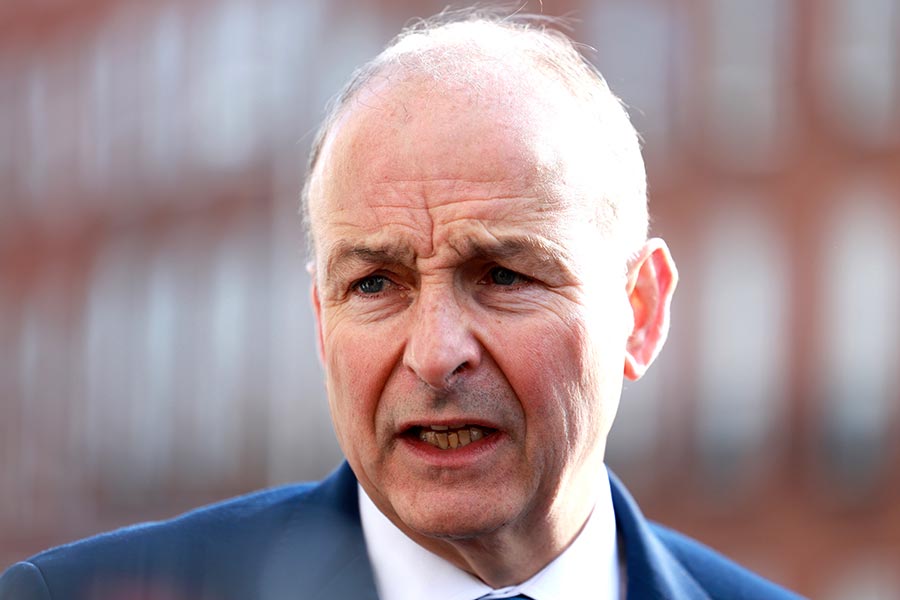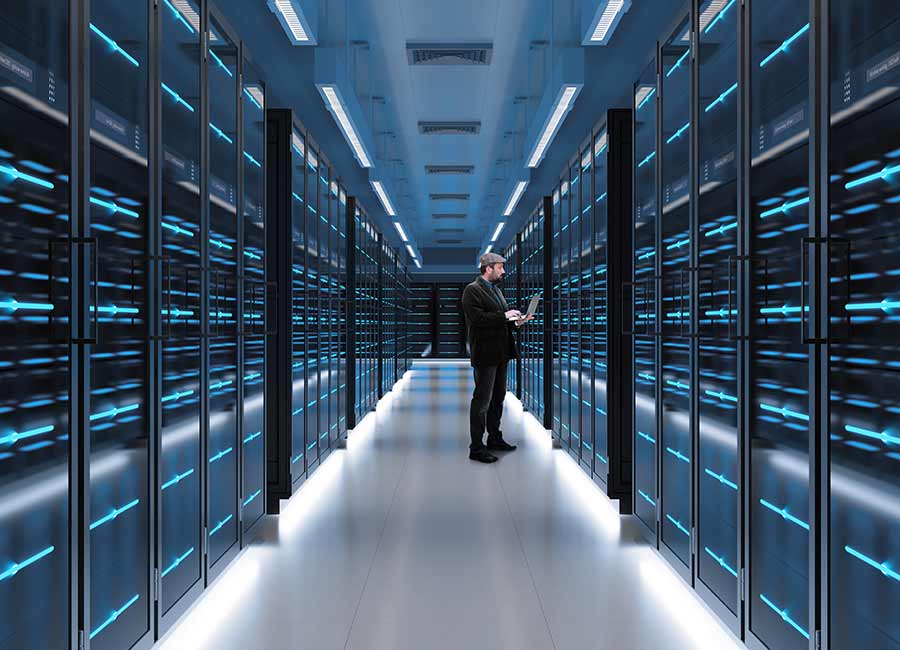"Workarounds" to restrictions on data centres are being explored by the Government so Ireland can keep pace with the “AI revolution”, writes Sarah McGovern.
Taoiseach Micheál Martin criticised “ill-informed” debate on data centres in the Dáil and called for more “sensible” discussions about the matter.
He said that Government departments and the Commission for Regulation of Utilities (CRU) are examining the future of the data centre moratorium in Dublin.
It comes despite concerns that data centres are consuming so much power that they are putting the delivery of new homes at risk and driving up energy bills.
A senior civil servant last week warned Ireland will have to choose between “housing or AI”, as they eat up so much energy that the capacity to connect new homes to the electricity grid is affected.
But the Fianna Fáil leader has doubled down on plans to build more data centres, amid claims from the tech sector that the de-facto moratorium is stalling the creation of thousands of jobs.
Mr Martin said that he “would be confident in the post-2030 era” that Ireland will be generating enough renewable energy “to deal with the AI revolution” and the impact the technology and data centres have on the environment and energy supplies.
Mr Martin said the debate on data centres is “ill-informed” and criticised the focus on regulation over innovation at an EU level.
Demand for data centres soared following the emergence of artificial intelligence, which relies on the facilities for storage, power and data processing.
But Opposition TDs and environmentalists have cited the strain they place on the grid and their environmental impact. Concerns over their energy use resulted in Eirgrid introducing a de-facto moratorium on new data centres in Dublin in 2022, which is set to last until 2028.
But in an address at the Global Economic Summit last week, Mr Martin highlighted the economic need for Ireland and Europe to keep pace with other global economies in the “AI revolution”.
“The digital and green economies, we can’t separate them out. They’re both key pillars of the future, and we’ve got to work extremely hard to work out how we develop both,” he said.
“We’ve had a relatively negative domestic debate about data centres which I think has been ill-informed and has not had perspective...
“We need perspective on these issues, because people increasingly want the services that the digital world provides.
“We’ve got to work on where we provide the energy and to match that. We [need to] just get sensible about the debate and how we work our way through it.”
The Taoiseach said that Europe is “way behind in AI as a continent compared to the US and China” – a point that he said was frequently made by US executives on his St Patrick’s Day visits.
Responding to queries, the Taoiseach said the Government and the energy regulator are reviewing the embargo on new data centres in the capital.
“The regulator is looking at the [moratorium] with the Department of Climate and Environment and is working with the Department of Enterprise in mapping out the next number of years in terms of how we can deal with this.
“Because I would be confident in the post-2030 era that we will have sufficient renewables coming on board to deal with the AI revolution and the impact it’s having on the consumption of energy,” Mr Martin said.
The Fianna Fáil leader acknowledged the “realities about what the energy grid can provide”.
But he welcomed a recent CRU policy paper which included a proposal requiring data centres to build plants to store electricity on site.
He added: “There are workarounds to this, and that’s what the Government – with the two departments that I’ve mentioned, plus the CRU are now looking at.”
Figures published by the Central Statistics Office (CSO) last summer showed that data centre demand grew by 1,064 gigawatt hours (GWh), or 20%, in 2023.
Research from the Sustainable Energy Authority of Ireland (SEAI) showed that renewable power connected to the grid, primarily from wind and solar projects, grew by an almost identical amount in the same year, meaning the growth in clean power achieved in 2023 was entirely cancelled out by the growth in electricity demand from data centres.
In 2023, for the first time, Ireland’s data centres consumed more electricity last year than all of its urban homes combined.
Data centres consumed 21% of energy from the grid that year, compared to 18% used to power homes across the country.
Dublin is the world’s third-largest data centre hub, according to a study by US-based analyst Synergy Research Group last year.
Social Democrats spokeswoman on climate, the environment and energy Jennifer Whitmore said that changing State policy on data centres without proper consultation would be “very dangerous” for the economy.
The Wicklow TD said Ireland has had a “turbulent” number of years in terms of energy security, citing warnings of blackouts in the past five years.
“By 2030, 30% of Ireland’s energy supply could be going towards data centres.
“This compares to an EU average of 3%. We are already overstretching ourselves,” she said.
The data centre firm Equinix last week cited research it commissioned by KPMG, which found plans for new data centre in south Dublin would support a further 10,000 jobs and contribute €200m to the economy.
Secretary general of the Department of Energy, Oonagh Buckley, said last week that Ireland faces a choice between providing energy for data centres or housing – a claim that has been characterised as “not true” by the Taoiseach.

The Taoiseach was also critical about the EU’s approach to data centres and AI, saying that there is a perception of the bloc being “overly focused on regulation to the detriment of innovation”.
However, he welcomed a “shift in attitude” from European Commission chief Ursula von der Leyen in recent weeks and highlighted the recent AI summit in France, initiated by French president Emmanuel Macron, as “particularly useful”.
In a statement, the Department of Enterprise said that there has been “cross-Government engagement between departments and with the data centre sector” to inform CRU policy on large energy users and “ensure that all views are understood by Government and the regulator” before proposals are implemented.
A spokeswoman for the Department of the Environment, Energy and Climate said that Ireland’s relationship with the tech sector is “really important, and the Government continues to work with the sector towards a secure and decarbonised energy future”.











